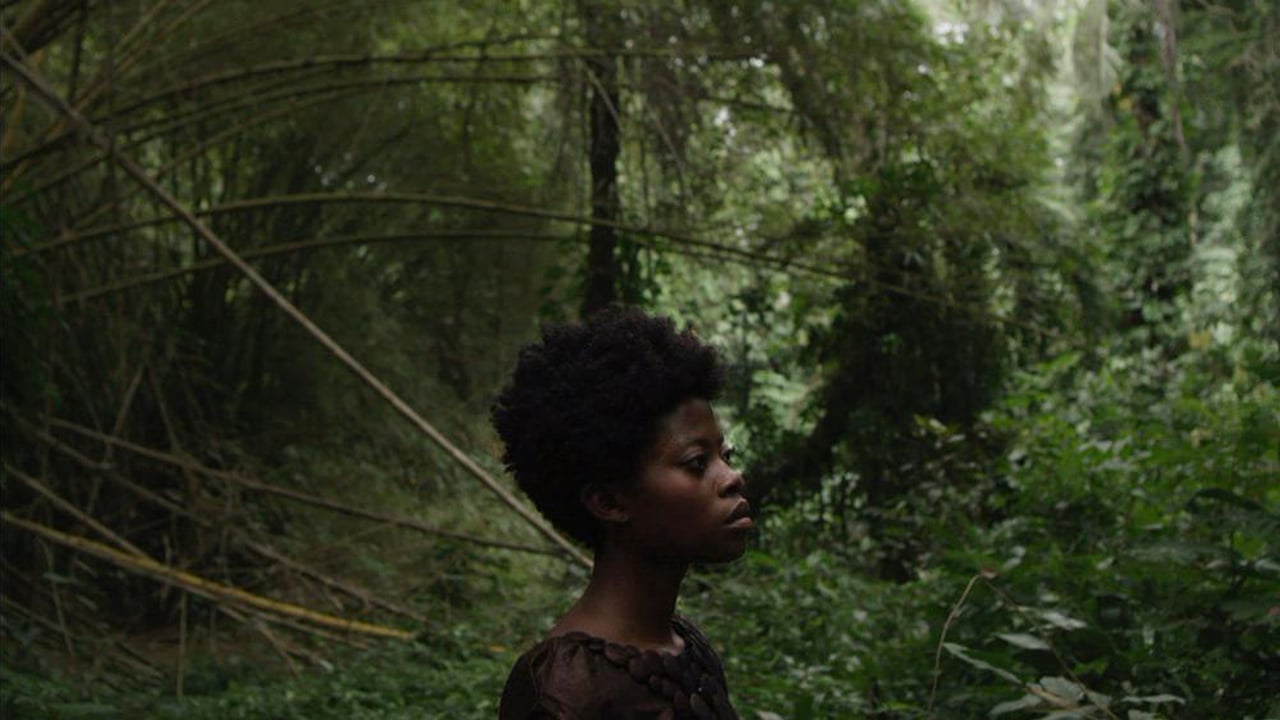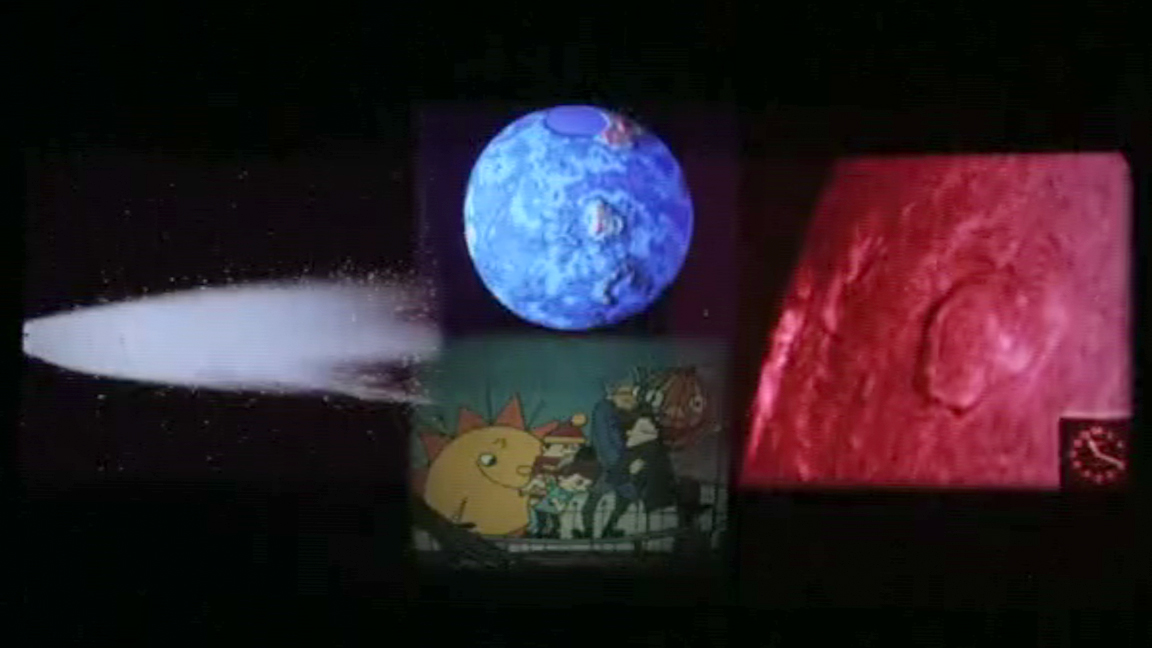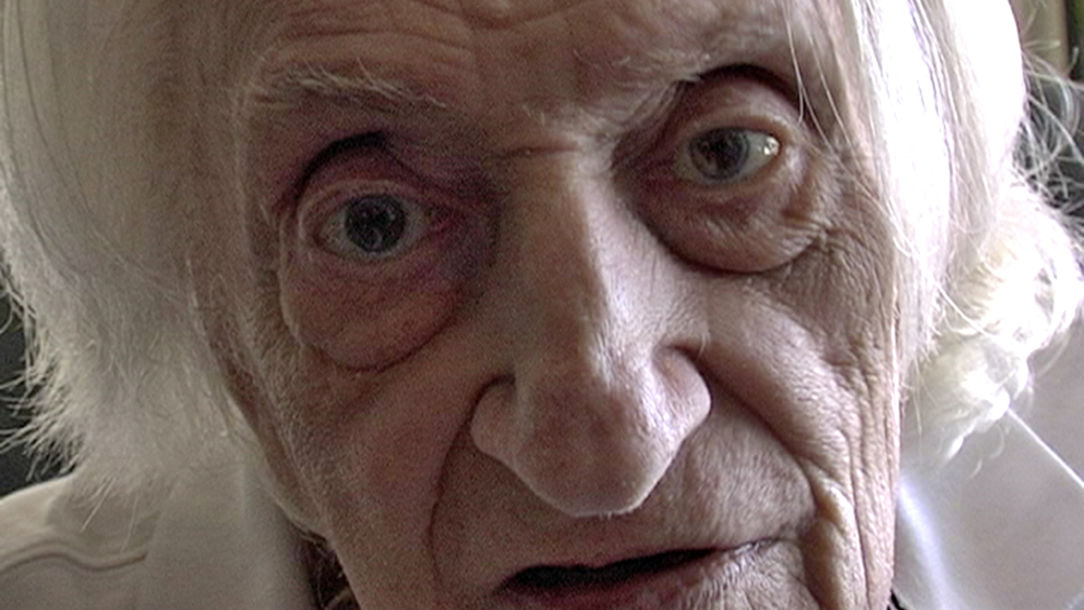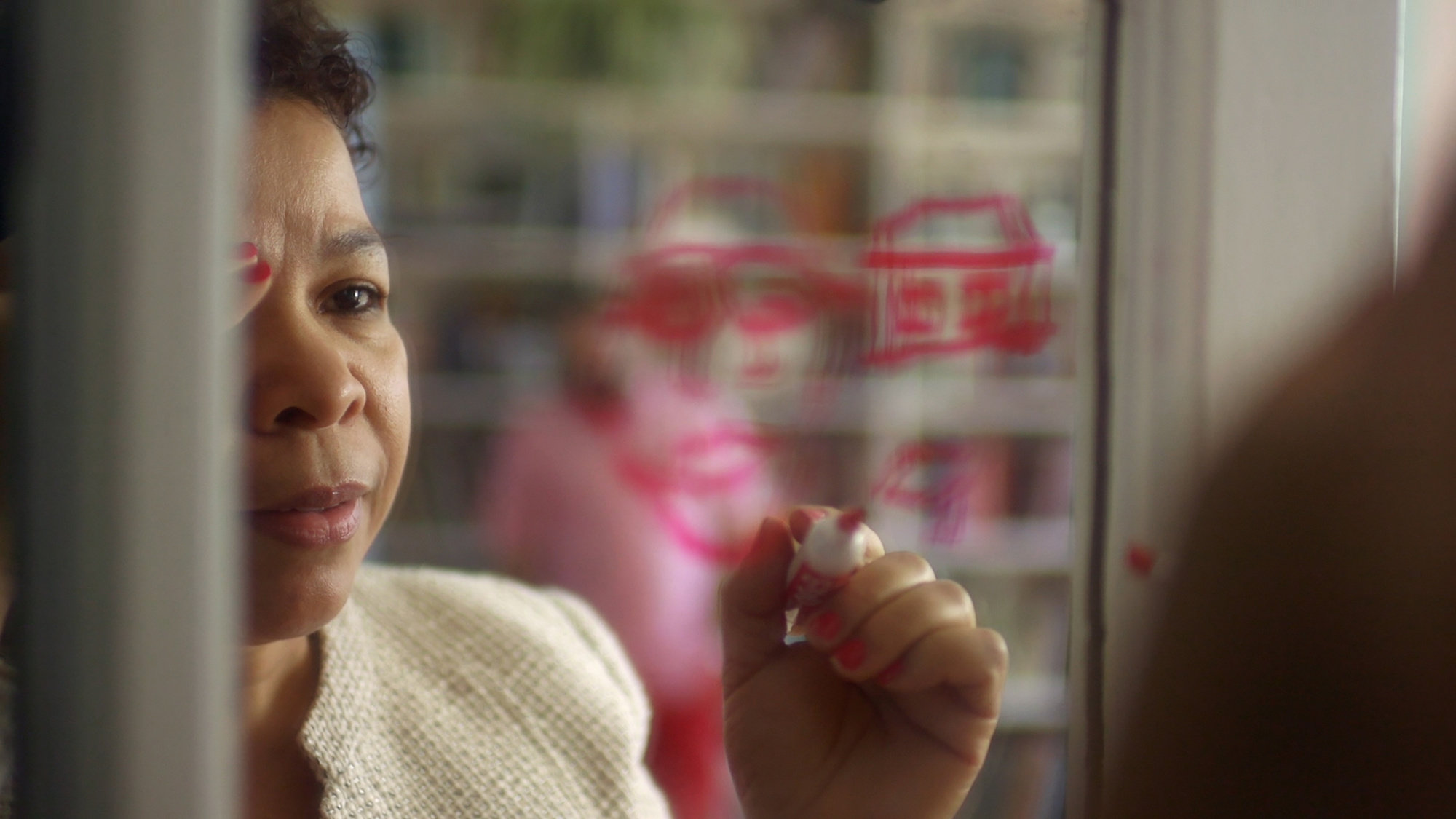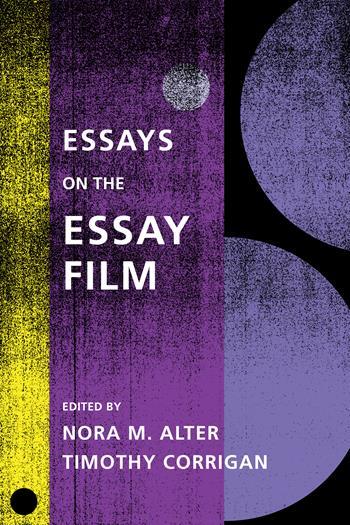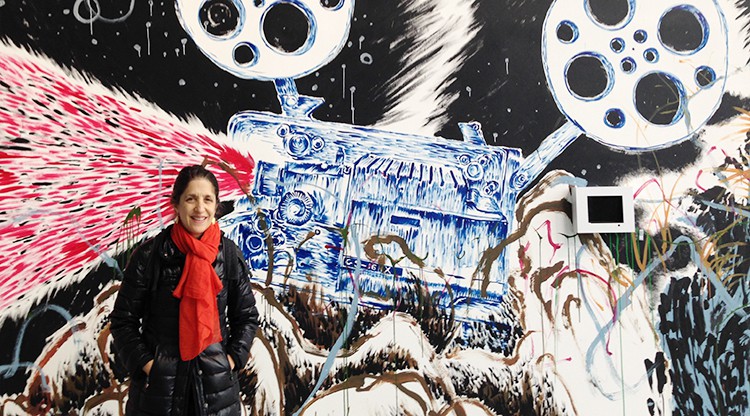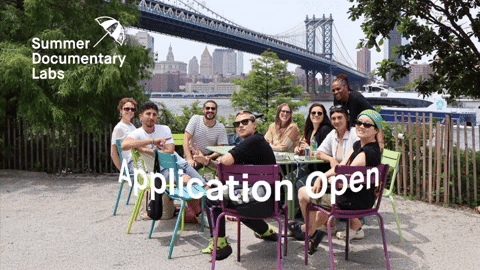This workshop is SOLD OUT. Please sign up for the waitlist below to receive updates regarding any openings or similar future opportunities.

- This event has passed.
Sep 8, 2017 at 10:00 am – Sep 10, 2017 at 5:00 pm
A Letter to the World: Experiments in Essay Filmmaking
Oops! We could not locate your form.
In the words of renowned film avant-gardist Hans Richter, essay films “’make problems, thoughts and even ideas’ perceptible … they ‘render visible what is not visible.’”
From Chris Marker and Agnes Varda to Travis Wilkerson and Trinh T. Minh-ha, filmmakers and artists have been using the genre of essay filmmaking to explore new modes of blending fact, fiction, and experience to capture essential truths. A constantly evolving and flexible form, essay films are used to document cultural and historical moments, evoke a feeling, unravel an auto-biography, and respond to critical social turning points with a challenging mix of traditional documentary conventions, personal nuance and experimental artistry.
Join UnionDocs and filmmaker Lynne Sachs to explore the history, theory and practice of this shape-shifting genre. Open to filmmakers, students, artists, scholars and more, this three-day intensive enables artists to articulate their ideas and explore new methodologies in crafting their work.
Participants in this intensive workshop will have the chance to work with a wide range of scholars and practitioners: Lynne Sachs will lead the course with help from filmmakers Alan Berliner, Akosua Adoma Owusu and Roger Beebe. Scholars and co-writers of “Essays on the Essay Film”, Timothy Corrigan & Nora M. Alter will join and provide a window into the theory and history of the form. Through seminars and work-in-progress critiques, together participants will each, in their own way, push the boundaries of reality-based work, questioning truth and fact as they are conveyed and represented, and learn how to put this new knowledge into practice. Current projects are not required to attend, but encouraged!
Details
Open to everyone, though the workshop setting is best suited for filmmakers, film producers, journalists, curators and media artists.
Give us an idea of who you are and why you are coming. When you register you will be asked for a short statement of interest that should briefly describe your experience and a film project (it would be great if you have a project in progress that you would present to the group during the work-in-progress critique sessions), plus a bio. There’s a spot for a link to a work sample (and CV, which would also be nice, but is not required).
$295 early bird registration by August 25th, 2017 at 5PM.
$350 regular registration.
The deposit is non-refundable. Should you need to cancel, you’ll receive half of your registration fee back until August 25th. After August 25th, the fee is non-refundable.
In order to keep costs down, this workshop is a BYOL, i.e. bring your own laptop. Students must be fully proficient using and operating their computers.
To register for a workshop, students must pay in full via PayPal. Course fees are not refundable or transferable, and any withdrawals will result in the full cost of the class being forfeit. There will be no exceptions. To withdraw from a course please email info-at-uniondocs.org.
In the event that a workshop does not receive sufficient enrollment, it may be canceled. Students will be notified at least 48 hours prior to the start of a cancelled workshop and will be refunded within 5 business days. If we reschedule a workshop to another date, students are also entitled to a full refund. UnionDocs reserves the right to change instructors without prior notification, and to change class location and meeting times by up to an hour with 48 hours prior notice.
Schedule
Friday, Sept. 08: 10am-5pm
AM: Alan Berliner
Alan Berliner will take us on a guided tour through some of the sounds, images, themes, and storytelling strategies that have helped define his filmmaking career for more than three decades. Berliner will show examples from his films that help us understand both the risks and rewards of using one’s own life as a “living laboratory,” and how and why he’s devoted his life to exploring the personal, familial, and cultural dimensions of identity, memory, aging, love, family relationships, and the fragility of the human condition.
Berliner’s master class will also focus on the process of editing, using clips from his films to illustrate how he creates compellingly dynamic montages from the compilation, collage, and counterpoint of a wide variety of personal, poetic, historical, archival, and musical sources — and how the way he tells his story can be as interesting as the story he tells.
PM: “Kernel/Constellation: One Approach to the Pop-Cult Essay Video” with Roger Beebe
This presentation seeks to illuminate a strategy Beebe has used in his own essayistic video works that engage popular media to look critically at the ideas and ideologies in those texts. In addition to exploring the method behind a few of his completed videos, Beebe will also discuss a video work that he never made (as the possible “kernel” that might generate a future project) and a long-simmering essayistic doc project that he’s been shooting for a decade but that has yet to coalesce around a kernel.
7:30pm: A Kaleidoscope of Ideas and Doubts: A night of performances and videos exploring the essay film with Lynne Sachs, Roger Beebe and Akosua Adoma Owusu
Saturday, Sept. 09: 10am-5pm
AM: “Intersections: The Essay Film at the convergence of fact and fiction, public and private” with Lynne Sachs
Essay films “serve the crisis … by provoking the mind to experiment and configure things differently” (Max Bense). In this workshop, Sachs will share excerpts from her recent films “Tip of My Tongue” and “The Washing Society,” hybrid projects that bring together the imaginary and the hyper-real. Participants will then write monologues that composite their own historical experiences with those of an invented persona as a way to explore the boundary-breaking possibilities of the essay film.
PM: Essays on the Essay Film with Timothy Corrigan & Nora M. Alter
Corrigan and Alter will discuss what makes the essay film unique and why it is important to the contemporary moment. The panel will be moderated by Lynne Sachs.
Sunday, Sept. 10: 10am-5pm
AM: Akosua Adoma Owusu
The politics of representation depends on dismantling monolithic, reductive, and “Western”-centric renderings of exoticism and otherness in identities. This presentation looks at excerpts of work by filmmaker Akosua Adoma Owusu, whose films addresses a collision of identities, where the African immigrant located in the United States has a triple consciousness. This third identity or consciousness of the African immigrant transitions between avant-garde cinema, fine art, and African tradition to complicate the nature of identity. Her documentary essay and experimental film work ranges with its varied use of archival material, direct animation, and staged scenes to examine the construction of historical memory and cultural identity.
PM: Work-in-progress critique with Lynne Sachs
Participants will share and discuss works in progress. Media samples of no more than 3 minutes will be circulated in advance.
Each day follows this general structure, with some minor variations and substitutions:
10:00a
Warm up with introductory questions + viewing exercises
11:00a
Presentation by guest speaker + discussion
1:00p
Lunch (on your own)
2:00p
Presentation by guest speaker + discussion
4:00p
Discussion + sharing of work
5:00p
Wrap up with closing questions
Bios

Lynne Sachs makes films, installations, performances and web projects that explore the intricate relationship between personal observations and broader historical experiences by weaving together poetry, collage, painting, politics and layered sound design. Strongly committed to a dialogue between cinematic theory and practice, she searches for a rigorous play between image and sound, pushing the visual and aural textures in her work with every new project. Her five essay films took her to Vietnam, Bosnia, Israel, Italy and Germany — sites affected by international war – where she looked at the space between a community’s collective memory and her own subjective perceptions. Recently, after 25 years of making experimental documentaries, Sachs learned something that turned her filmmaking upside down. While working on Your Day is My Night (2013) in NYC’s Chinatown, she saw that her subjects were performing for her rather than revealing something completely honest about their lives. The process of recording guaranteed that some aspect of the project would be artificial. This moved Sachs toward a new type of filmmaking — she invited her subjects to become her collaborators — to work with her to make the film about their lives.
Sachs has made over 25 films, supported by fellowships from the Rockefeller and Jerome Foundations and the New York State Council on the Arts. Her films have screened at the New York Film Festival, the Sundance Film Festival and Toronto’s Images Festival. Her work has also been exhibited at the Museum of Modern Art, the Whitney, Walker Art Center, Wexner Center for the Arts and other venues nationally and internationally.
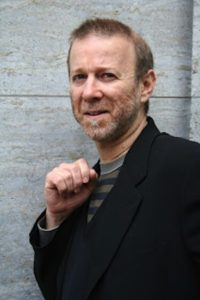
Alan Berliner‘s uncanny ability to combine experimental cinema, artistic purpose, and popular appeal in compelling film essays has made him one of America’s most acclaimed independent filmmakers. The New York Times has described Berliner’s work as “powerful, compelling and bittersweet… full of juicy conflict and contradiction, innovative in their cinematic technique, unpredictable in their structures… Alan Berliner illustrates the power of fine art to transform life.”
Berliner’s experimental documentary films, First Cousin Once Removed (2013), Wide Awake (2006), The Sweetest Sound (2001), Nobody’s Business (1996), Intimate Stranger (1991), and The Family Album (1986), have been broadcast all over the world, and received awards, prizes, and retrospectives at many major international film festivals. The San Francisco International Film Festival called Berliner, “America’s foremost cinematic essayist.” The Florida Film Festival called him “the modern master of personal documentary filmmaking.” Over the years, Berliner’s films have become part of the core curriculum for documentary filmmaking and film history classes at universities worldwide, and are in the permanent collections of many film societies, festivals, libraries, colleges and museums. All of his films are in the permanent collection of the Museum of Modern Art.
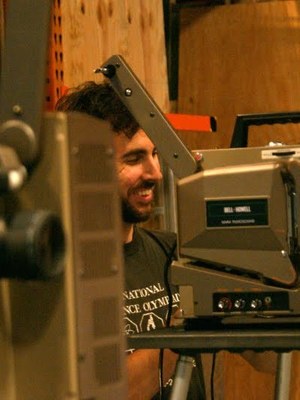
Roger Beebe is a filmmaker whose work since 2006 consists primarily of multiple projector performances that explore the world of found images and the “found” landscapes of late capitalism. He has screened his films around the globe at such unlikely venues as the CBS Jumbotron in Times Square and McMurdo Station in Antarctica as well as more likely ones including Sundance and the Museum of Modern Art with solo shows at Anthology Film Archives, The Laboratorio Arte Alameda in Mexico City, and Los Angeles Filmforum among many other venues. Beebe is also a film programmer: he ran Flicker, a festival of small-gauge film in Chapel Hill, NC, from 1997-2000 and was the founder and Artistic Director of FLEX, the Florida Experimental Film Festival from 2004-2014. He is currently a Professor in the Department of Art at the Ohio State University where he is helping to launch the new Moving-Image Production major in Autumn 2017.
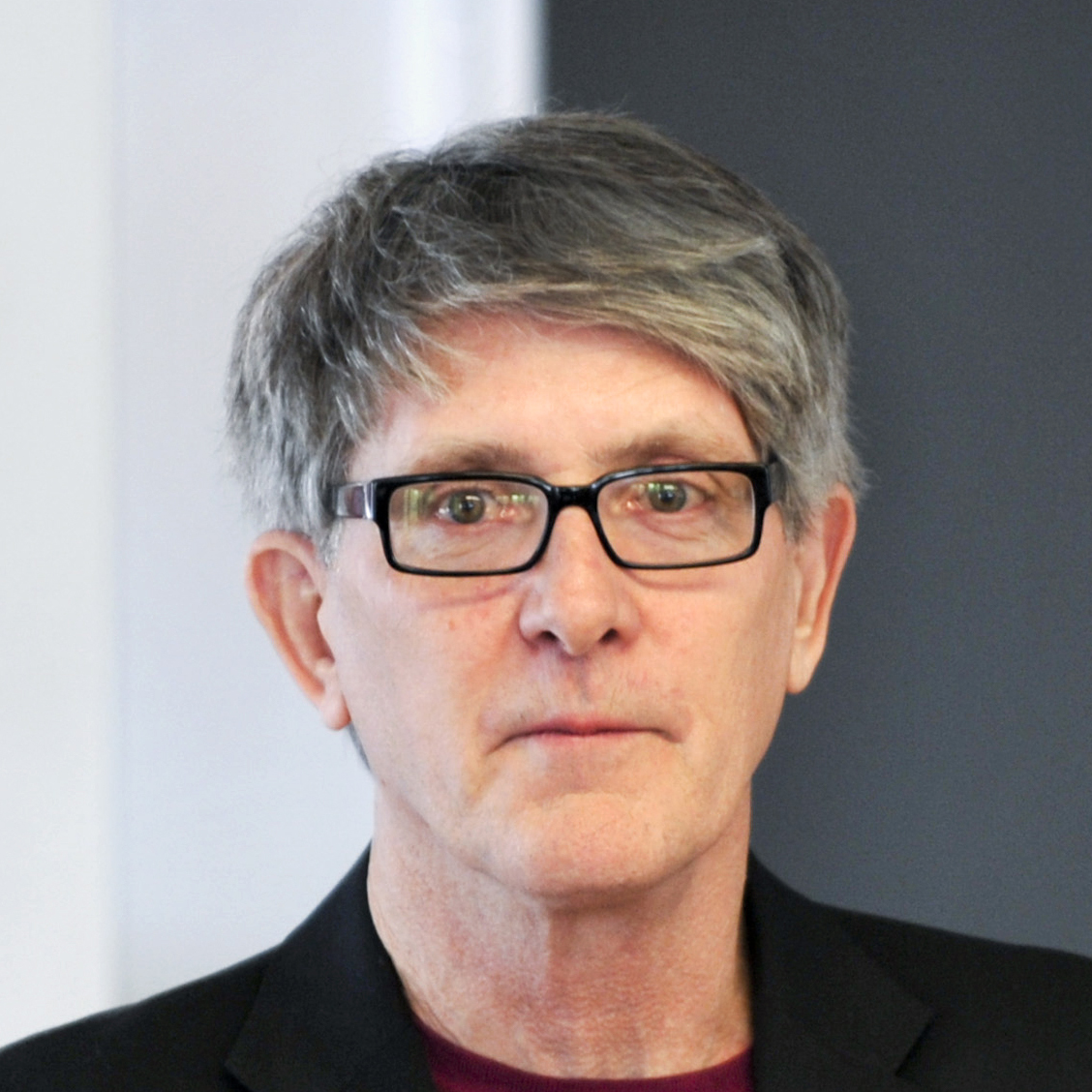
Timothy Corrigan is a Professor of English and Cinema Studies at the University of Pennsylvania. His work in Cinema Studies has focused on contemporary international cinema and modern documentary film. He received a B.A. from the University of Notre Dame, and completed graduate work at the University of Leeds, Emory University, and the University of Paris III. He has published essays in Film Quarterly, Discourse, and Cinema Journal, among other collections, and is also a member of the editorial board of the journal Adaptation. He is a member of graduate groups and an affiliated faculty member in the departments of English, History of Art, German, Women’s Studies, and Comparative Literature. In 2014 he received the Society for Cinema and Media Studies Award for Outstanding Pedagogical Achievement and the Ira H. Abrams Memorial Award for Distinguished Teaching in the School of Arts and Sciences at the University of Pennsylvania.
Books include New German Film: The Displaced Image (Indiana UP), The Films of Werner Herzog: Between Mirage and History(Routledge), Writing about Film (9th ed., Longman/Pearson), A Cinema without Walls: Movies and Culture after Vietnam (Routledge/Rutgers UP), Film and Literature: An Introduction and Reader (2nd ed., Routledge), The Film Experience (4th ed., Bedford/St. Martin’s, co-authored with Patricia White), Critical Visions: Readings in Classic and Contemporary Film Theory (Bedford/St. Martin’s, co-authored with Patricia White and Meta Mazaj), American Cinema of the 2000s (Rutgers UP), Essays on the Essay Film (Columbia UP, co-authored with Nora Alter), and The Essay Film: From Montaigne, After Marker (Oxford UP), winner of the 2012 Katherine Singer Kovács Award for the outstanding book in film and media studies.
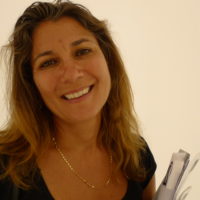
Nora M. Alter is Professor of Film and Media Arts at Temple University in Philadelphia. She is author of Vietnam Protest Theatre: The Television War on Stage (1996), Projecting History: Non-Fiction German Film (2002), Chris Marker (2006), co-editor with L. Koepnick of Sound Matters: Essays on the Acoustics of Modern German Culture (2004), and co-editor with T. Corrigan, Essays on the Essay Film (2017). Her forthcoming book, The Essay Film After Fact and Fiction, will be published later this year. Alter has published widely on German and European Studies, Film and Media Studies, Cultural and Visual Studies and Contemporary Art. She has written on artists including John Akomfrah, Yael Bartana, Daniel Buren, Stan Douglas, Maria Eichhorn Dan Eisenberg, Renée Green, Hans Haacke, Mathias Poledna, and others. She is former recipient of the DAAD Prize for Distinguished Scholarship in German and European Studies. She has been awarded year long research fellowships from the National Endowment for the Humanities, the Howard Foundation and the Alexander von Humboldt Foundation.
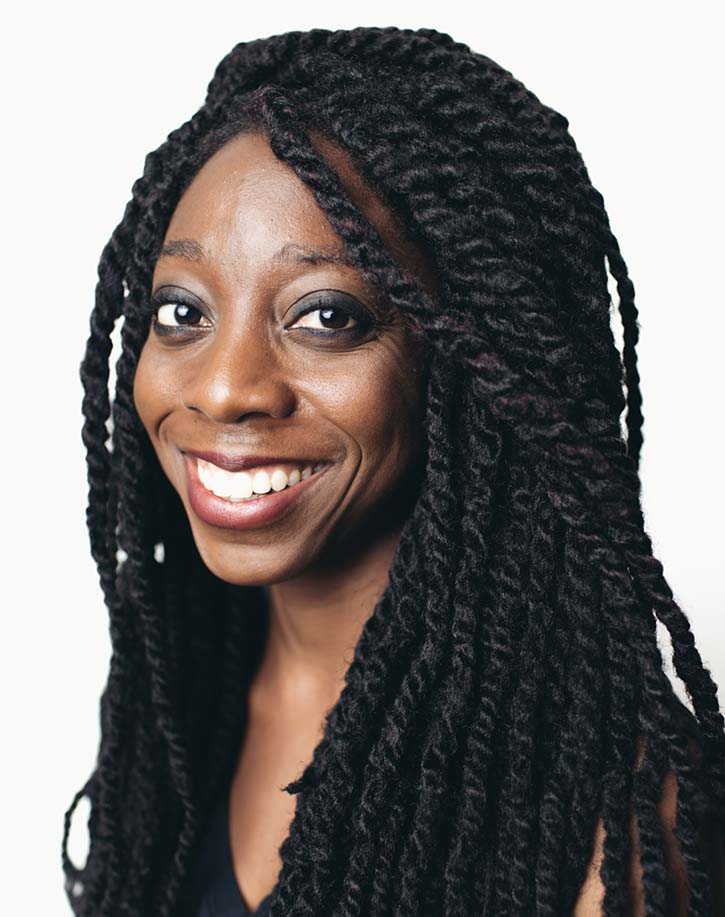
Akosua Adoma Owusu is a Ghanaian-American avant-garde filmmaker and producer whose films have screened worldwide in prestigious film festivals, museums, galleries, universities and microcinemas since 2005. Her work addresses the collision of identities, where the African immigrant located in the United States has a “triple consciousness.” Owusu interprets Du Bois’ notion of double consciousness and creates a third identity or consciousness, representing the diverse consciousness of women and African immigrants interacting in African, white American, and black American culture.
Named by Indiewire as one of the 6 Avant-Garde Female Filmmakers Who Redefined Cinema, and one of The Huffington Post‘s Black Artists: 30 Contemporary Art Makers Under 40 You Should Know, Akosua Adoma Owusu is a MacDowell Colony Fellow and a Guggenheim Fellow. Founded in 2007, her company, Obibini Pictures, LLC produces unconventional films about multicultural experiences including Reluctantly Queer and Kwaku Ananse, which received the 2013 African Movie Academy Award for Best Short Film. Reluctantly Queer was nominated for the Golden Bear and Teddy Award at the Berlinale, Berlin International Film Festival in 2016.

